Category: Featured

LAVA JATO PUSHES MONEY LAUNDERERS TO ADOPT MORE SOPHISTICATED WAYS TO HIDE DIRTY CASH IN BRAZIL
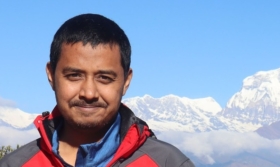
INS BANGLADESH CORRESPONDENT WINS "BRAC MIGRATION AWARD"
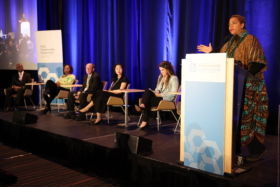
ISSB PUSHES FOR ITS STANDARDS TO BE SUSTAINABILITY REPORTING GLOBAL BASELINE
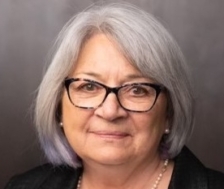
OPINION PIECE – CANADIAN GOVERNOR GENERAL SHOULD SUE TWITTER AND HELP CLEAN UP SOCIAL MEDIA
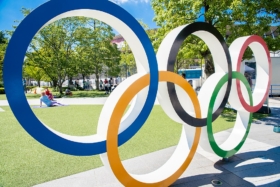
JAPAN COATINGS SECTOR GIVEN A BOOST BY OLYMPICS, BUT COMPANIES ARE NOW LOOKING FOR NEW DEMAND
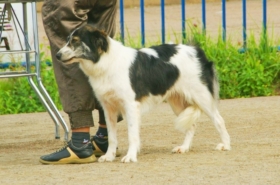
A Dog's Life in Tunisia
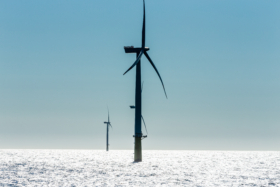
UK-GERMANY NEUCONNECT INTERCONNECTOR COULD PROVIDE MODEL FOR CHEAP CLEAN ENERGY DISTRIBUTION

CIVIL AVIATION SECTOR PUSHES AHEAD WITH SUSTAINABLE FUEL GROWTH
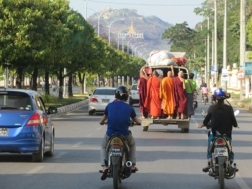
FORMER INS CORRESPONDENT PUBLISHES MYANMAR MEMOIR
A FORMER correspondent for International News Services has published a memoir about the four years she lived in Myanmar.
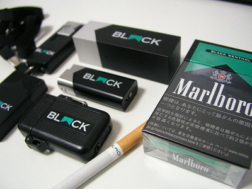
PMI WARNS OF EXPANDING ILLICIT ONLINE SALES PLATFORMS

International News Services’ Nigeria correspondent explores Lagos city life in vivid photographic book

International News Services is southern England ‘Media Company of the Year’

NORDIC BEAUTY MARKET HIT BY COVID-19, BUT FUNDAMENTAL STRENGTHS REMAIN

INDIAN CAPITAL EXPANDS INTERNATIONAL AIRPORT AS AIR TRAFFIC GROWS FAST
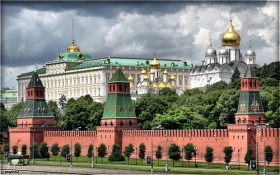
EUROPEAN DAIRY SECTOR ENCOURAGED BY RUSSIA LOOSENING IMPORT BAN TO COPE WITH COVID-19

GROWING DESIRE FOR WELLNESS EXPANDS SALE OF NICHE BEAUTY PRODUCTS FOR EXERCISE AND ATHLETICS

OPINION: Canada Rail Distruptions and the Need for Reconciliation
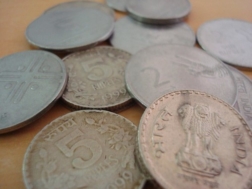
INDIA: BANKNOTES FOR VOTES CORRUPTS BUSINESS ENVIRONMENT
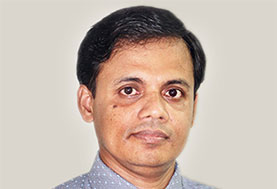
INTERNATIONAL NEWS SERVICES CORRESPONDENT HONOURED OVER CLIMATE CHANGE REPORTS
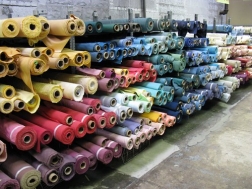
COMMISSION SETS STRICTER CMR LIMITS FOR TEXTILES
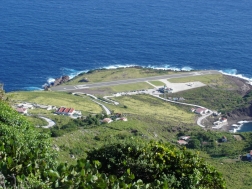
WORLD’S SMALLEST COMMERCIAL RUNWAY REBUILT – IN SABA, DUTCH CARIBBEAN

PLANNED EU RULING MAY REGULATE TATTOO INKS FOR THE FIRST TIME TO AVOID HEALTH RISKS
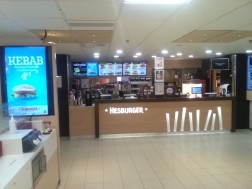
FINNISH FAST FOOD CHAIN HESBURGER TAKES ON THE CHALLENGES OF EAST EUROPEAN MARKETS
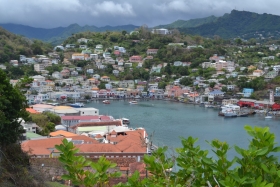
SUCCESSFUL SPIRITS ENTREPRENEURS BUILD NEW HIGH-END RUM FACTORY ON GRENADA
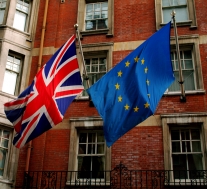
MULTIPLE TRADE DEALS ALWAYS LIMIT GOVERNMENT POLICY FREEDOMS – A POLITICAL TRUTH UNDERMINING BREXITEER ‘CONTROL’ GOALS

UK BENEFICIAL OWNERSHIP VOTE ALARMS OVERSEAS TERRITORIES

MAJOR INDIAN FOOD ASSOCIATIONS OPPOSE PLANNED SINGLE USE PLASTICS BAN
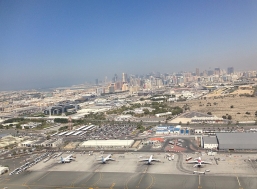
DUBAI SHOW SEES LAUNCH OF SMART SOFTWARE PLATFORMS TO BOOST AIRPORT SECURITY

EUROFER WARNS OVER JOB LOSSES RELATED TO USA METAL DUTIES
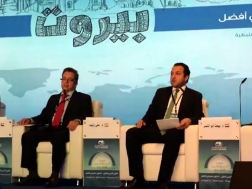
Lebanese Banks Are Battling It On In A Difficult Environment

Automakers tell Britain auto jobs could be lost if the UK leaves the EU

Lebanon's car sector: the downward shift

EBRD mulls loan to Ukraine graphite electrode maker
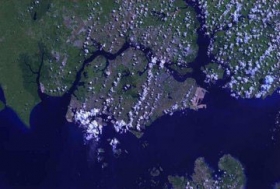
Singapore accountants look for opportunity in economic adversity

Parliament Hill's ravens should return

Breaking news story - Brussels says nearly 5% of EU beef contaminated with horsemeat
Arms and drug smuggling combine with kidnapping in the Algerian Sahara
 By Kaci Racelma, in Tizi Ouzou, Algeria; and Paul Cochrane, in Beirut
By Kaci Racelma, in Tizi Ouzou, Algeria; and Paul Cochrane, in Beirut
This article appeared last March (2012) in Commercial Crime International, a specialist title run by the International Chamber of Commerce. It foreshadowed the Islamist-related unrest and rebellion that actually occurred later in Mali and Algeria….
COMMERCIAL crime may not be as omnipresent in North Africa as in some other parts of the world, but companies operating in the region have risks to contend with. Corruption is rife, smuggling across the borders with Sub-Saharan countries is a major activity, and terrorist groups such as Al Qaeda in the Islamic Maghreb (AQIM) are in the ascendancy. Kaci Racelma and Paul Cochrane take a detailed look at these problems.
China introduces sex education in primary schools
 By Wang Fangqing
By Wang Fangqing
China, a nation once so secretive about sex, is determined to introduce sex education as early as primary schools. On December 12, China’s Ministry of Education released a draft of the National Standard for Primary School Teachers that included a requirement that teachers “get the knowledge and methods of puberty and sexual education.”
Beijing and Shanghai, the two most developed cities in China, launched sex education programs in selected local primary schools months ago along with the textbooks: “Steps of Growth” in Beijing and “Boys and Girls” in Shanghai, both presented in manga style to appeal to the young students.
China Introduces Sex Education in Primary Schools
 By Wang Fangqing
By Wang Fangqing
China, a nation once so secretive about sex, is determined to introduce sex education as early as primary schools. On December 12, China’s Ministry of Education released a draft of the National Standard for Primary School Teachers that included a requirement that teachers “get the knowledge and methods of puberty and sexual education.”
Beijing and Shanghai, the two most developed cities in China, launched sex education programs in selected local primary schools months ago along with the textbooks: “Steps of Growth” in Beijing and “Boys and Girls” in Shanghai, both presented in manga style to appeal to the young students.
Saudi Arabia looks worldwide for nuclear collaborators
 By Paul Cochrane, in Beirut
By Paul Cochrane, in Beirut
Saudi Arabia’s failure to secure a wide-ranging atomic energy treaty with the USA, continues to push the oil-rich country into the arms of other nuclear suiters, experts on the kingdom have argued. The Saudi's plan is to invest USD112 billion over the next 20 years to build 16 nuclear power plants (NPPs) to offset rising domestic energy demand and retain its position as a leading hydrocarbons exporter.
Dreamy British Eurosceptics fantasize about UK leaving the EU – but their arguments are weak
 By Keith Nuthall, International News Services
By Keith Nuthall, International News Services
Britain’s recent refusal to sign a new European Union (EU) treaty that would impose tougher controls over the level of budget deficits EU governments can run might seem like prudence, given the appalling state of the Euro. But the failure of Britain to negotiate itself a real say in how Eurozone members control public spending poses grave risks for the UK and its financial sector.
Payment methods - ebook
This e-book is available from International News Services for US dollars USD 199; GBPounds GBP 125; Euro EUR 145, Canadian dollars CAN 196, Mexican peso MXN 2,391, Japanese Yen JPY 16,582.
There are 3 payment options. Paypal, Cheques or Bank transfer.
1. Pay via PayPal here
Payment Steps:
a. Go to payment link. Choose appropriate amount and currency. Select the option 'buying something'.
b. Write in your Paypal account email address.
c. Write in our Paypal account email address keith@intnews.co.ukd. Sign in to your Paypal account and confirm the transaction.
2. Pay via cheque/check in GBP, USD, EUR or CAD
a. Cheques in GBP should made be out to
INTERNATIONAL NEWS SERVICES LTD
And mailed/posted to:
108 ROOSEVELT AVENUE
CHATHAM
KENT
ME5 0HS
ENGLAND
b. Cheques in USD, EUR or CAD can be made out to INTERNATIONAL NEWS SERVICES LTD (CANADA)
And mailed/posted to:
UNIT 504
200 BESSERER STREET
OTTAWA
ONTARIO
K1N 0A7
CANADA
3. Bank transfer, available in GBP, USD, CAD, EUR, PES or YEN
For all direct transactions please include reference on wire:
'For International News Services'.
Please confirm payment by email to Carol Solomon at crsolomon@intnews.co.uk
*For transfers in GBP
Account number: 442374-270 GBP
Transit: 10031
Swift: HKBC CATT
*For transfers in USD
Account number: USD 031-442374-271
Transit: 10031
Swift: HKBC CATT
*For transfers in EUR
Account number: EUR 031-442374-272
Transit: 10031
Swift: HKBC CATT
*For transfers in CAD
Account number: 442374-001 CAD
Transit: 10031
Swift: HKBC CATT
*For transfers in MXN
Account number: 106180000129810157
Swift: BOFAMXMX
*For transfers in JPY
Account number: 22166014
Swift: BOFAJPJX
ENDS
The Middle East: On the edge of the abyss?
 By Paul Cochrane, in Beirut
By Paul Cochrane, in Beirut
Climate change spreads infectious diseases worldwide
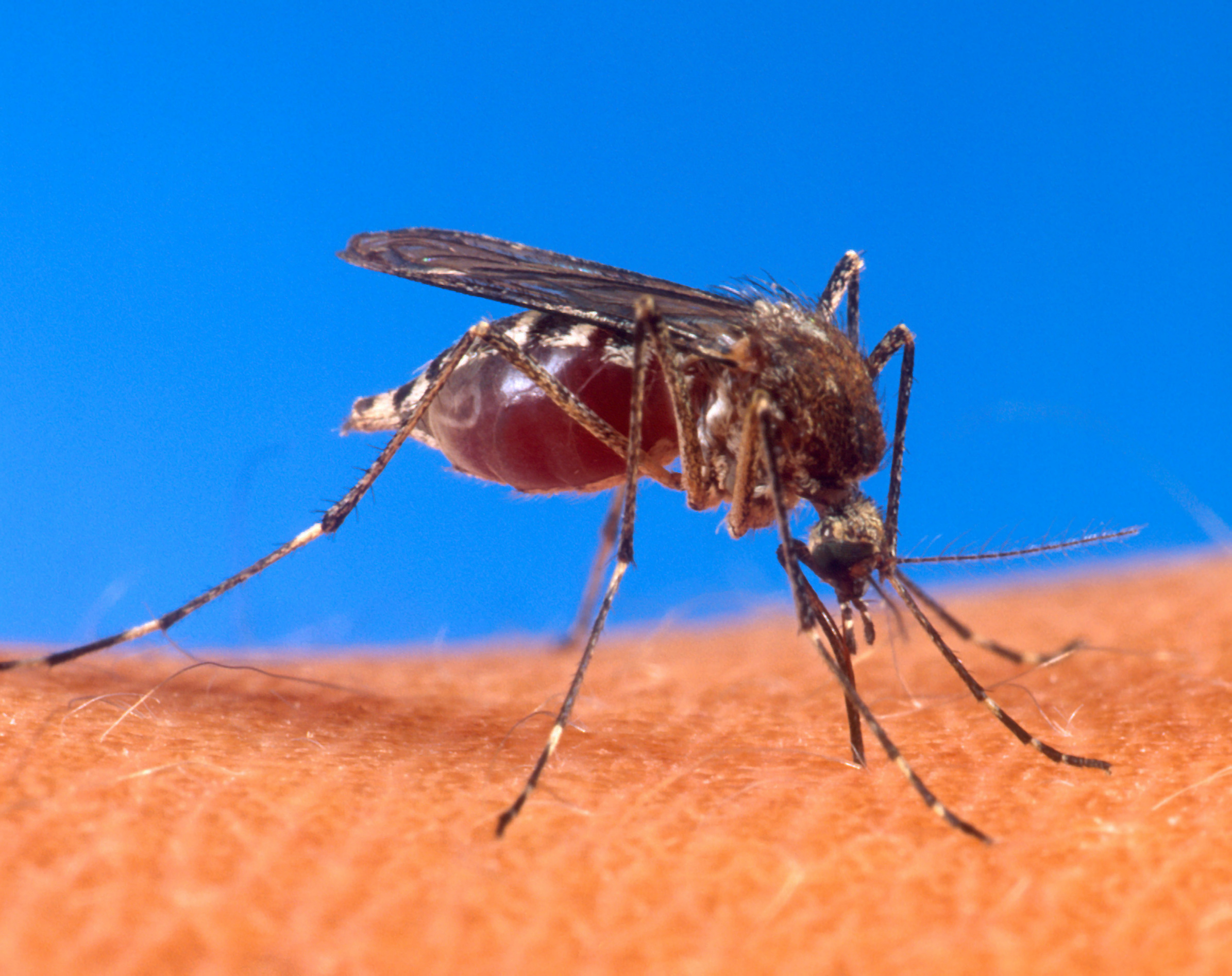 By Alyshah Hasham, International News Services
As negotiators at the recent United Nations climate change conference in Cancun wrapped up their work, one problem concentrating minds enough to secure a partial deal was the spread of disease on the coat-tails of global warming. Infectious diseases are spreading to regions where they were previously absent, driven by warmer temperatures and changing rainfall patterns. Europe and North America have been seeing an increase in cases of West Nile disease, which as the name suggests thrives in tropical and sub-tropical regions. Warmer temperatures are allowing the mosquitoes that carry the disease to roam further north. It’s a similar story for diseases such as dengue fever or tick-borne encephalitis (which causes brain inflammation).
By Alyshah Hasham, International News Services
As negotiators at the recent United Nations climate change conference in Cancun wrapped up their work, one problem concentrating minds enough to secure a partial deal was the spread of disease on the coat-tails of global warming. Infectious diseases are spreading to regions where they were previously absent, driven by warmer temperatures and changing rainfall patterns. Europe and North America have been seeing an increase in cases of West Nile disease, which as the name suggests thrives in tropical and sub-tropical regions. Warmer temperatures are allowing the mosquitoes that carry the disease to roam further north. It’s a similar story for diseases such as dengue fever or tick-borne encephalitis (which causes brain inflammation).
INS textile regulation ebook - chapter summary
Chapter 1: 2001
Perhaps the biggest news in 2001 was China’s admission as a member of the World Trade Organisation, which opened countless trade avenues but caused significant anxiety for China’s competitors. Meanwhile, governments prepared for the slow abolition of textile quotas with the phase-out of the Agreement on Textiles and Clothing. In March, for instance, the European Union (EU) removed its textile quotas for Sri Lanka, Bosnia and the Ukraine, widening the import market for those producers in exchange for lower tariffs on EU exports. In July, the European Commission issued a warning to the European textile industry to change its structure to remain competitive in light of the ATC (agreement on textiles and clothing) phase-out.
*9,500 words and 50 articles of varying lengths
Other articles in 2001 include:
*EU LOSES INDIAN BED LINEN APPEAL AT WTO
*OLAF REPORTS GERMAN-MALAYSIAN SCAM
*US HOUSE DOUBLES DUTY FREE AFRICAN QUOTAS
*SAFETY FOUND WANTING IN 20 AFRICAN FACTORIES
Chapter 2: 2002
Significant issues in 2002 included the beginning of India and US’s multi-year battle over rules of origin legislation, and frustrating diplomatic wrangles over the WTO’s ATC phase-out. Grumbling exporters and defendant importers could not agree to a final deadline for an official report on the issue, leaving unresolved issues and frustrated stakeholders. The WTO, perhaps in response to the vicious battle between India and the US, launched an investigation into creating a set of global rules of origin regulations, a debate which would also rage on for years.
*15,000 words and 101 articles of varying lengths.
Other articles in 2002 include:
*BLACK MARKET CLOTHES HURT INDONESIA TEXTILE TRADE
*EU MINISTERS APPROVE BED LINEN ANTI-DUMPING DUTIES FOR INDIA*SHORT CHAIN PARAFFIN BANNED IN LEATHER PRODUCTION
*EU EXTENDS VAT REDUCTIONS OPTION FOR TEXTILE SERVICES
Chapter 3: 2003
Chapter 3 follows the textile industry as it crept closer to quota abolition and a liberalised market. The European Union (EU) announced sweeping reforms to its textile trade regulations, and at the WTO the ongoing Indian-EU anti-dumping dispute ruled for India in an appeal, overturning yet another ‘final’ decision. This battle would flip-flop several more times before finally being resolved for good. Meanwhile, cotton became a hot issue in August, as subsidy reforms got under way at the EU and WTO to much global debate.
*4,800 words and 80 articles of varying lengths
Other articles in 2003 include:
*US SIGNS UNPRECEDENTED TEXTILE DEAL WITH VIETNAM
*INDIA LOSES RULES OF ORIGINS DISPUTE WITH US
*HFCF EMISSIONS REPORT CALLS FOR FLUORINATED GAS BAN
*MALAYSIA TEXTILE SECTOR COULD DISAPPEAR, NATION FEARS
Chapter 4: 2004
Among the biggest headlines was the US-Australian free trade agreement for the textile industry, which received mixed reviews from affected parties. As the ATC quota deadline approached, major textile countries also began to consider their options; a report in the EU predicted economic pain for the European textile industry, vulnerable to demand and high costs. Chinese production was predicted to soar to new heights under the ATC agreement, staking market shares from other nations, building a textile expire. In response, the EU vowed to monitor China for a year after quota abolition, reinstating quotas if necessary. *11,000 words and 74 articles of varying lengths.
Other articles in 2004 include:
*EU EXPANDS IMPORT QUOTAS IN PREP FOR NEW MEMBERS
*NETHERLANDS TO CONTINUE WITH SPECIAL VAT PROCEDURES
*ATC REPORT SUPPORTS PREFERENTIAL TARIFFS FOR LOSING MARKET
*US AND PAKISTAN NEGOTIATING MAJOR TRADE TREATY
Chapter 5: 2005
As the global textile industry abolished quotas for good, reporters documented how the ATC phase-out agreement had changed the global textile sector. Almost immediately, short-term job losses were predicted in sectors like the leather industry, and China’s clothing market share began to grow remarkably fast, sparking restrictions and temporary quotas in the EU. The EU’s REACH chemical control programme was approved, creating debate and controversy for the dye sector especially.
*7,200 words and over 50 articles of varying lengths
Other articles in 2005 include:
*EU-CHINA CUSTOMS DEAL TO FIGHT COUNTERFEIT CLOTHING
*DYE INDUSTRY SUPPLIED SADDAM KICKBACKS IN IRAQ
*EU TO IMPOSE ANTI-DUMPING DUTIES ON CHINESE/SAUDI POLYESTER
*AFRICAN COTTON PRODUCERS WIN SUBSIDIES FIGHT IN HONG KONG
Chapter 6: 2006
Chapter 6 follows the textile industry through its ongoing trade and policy changes, and its second year of market liberalisation. At the WTO, Doha development round negotiators worked on liberalising the international dye sector, while the EU continued to review and revise its cotton subsidies plan under increased pressure from West Africa and other producer countries. China and South Africa, meanwhile, worked throughout the year to resolve an ugly spat over textile quotas, with China coming out victorious.
*10,500 words and almost 50 articles of varying lengths
Other articles in 2006 include:
*AZO DYE CONTAMINATION IN PRODUCTS DESPITE BAN
*BIN LADEN TRADEMARK CASE LAUNCHED AT THE ECJ
*GLOBAL DEAL GIVES FREE MARKET ACCESS TO POOR COTTON PRODUCERS
*VIETNAM MEMBERSHIP OF WTO WILL CREATE TEXTILE TRADE
Chapter 7: 2007
In January, Vietnam was formally welcomed into the WTO, giving another major textile and clothing producer access to world markets. The EU expanded its trade deal with Belarus despite its ongoing human rights abuses, and the EU also desperately tried to make last-minute trade deals with China before the end of the last WTO-authorised trade controls in January 2008.
*5,200 words and over 20 articles of varying lengths
Other articles in 2007 include:
*EUROPEAN STANDARD ON CLOTHING SIZES TO CHANGE BRITISH SIZING CUSTOMS
*EUROPEAN COMMISSION PREDICTS LEATHER COMMERCE GAINS FROM ASIA TRADE DEALS
*INDIAN TEXTILE INDUSTRY STRUGGLES TO SURVIVE RUPEE HIKE WITH LABOUR LIBERALISATION PLANS
*EU PLANS TO MATCH DYE PACKAGING WITH UN STANDARDS
Chapter 8: 2008
The EU compiled a host of textile naming regulations and laws into one EU-wide regulation, and the WTO predicted lower leather duties across the globe as it neared the end of its development round in Doha. By the end of the year, the EU was sparking controversy as it reviewed its anti-dumping duties imposed on China and Vietnam leather products, extending the duties for a year while the investigation continued.
*2,500 words, including 10 extended articles
Other articles in 2008 include:
*DISCORD AMONGST MEMBER STATES STYMIES ANTIDUMPING REFORMS
*POLAND FACES COURT ACTION OVER LOW CHILDREN’S CLOTHES VAT RATES
*EU FASHION INDUSTRY TO BENEFIT FROM ONCOMING EU-BOSNIA TRADE DEAL
*EUROPEAN COMMISSION PLANS TO INCREASE RAW MATERIALS SECURITY – INCLUDING LEATHER
Chapter 9: 2009
This follows textile and clothing international law and regulatory developments to the end of June. The EU banned seal product imports, which sparked a Canadian complaint at the WTO and created debate across the globe. Earlier in the year, the European Commission proposed doubling the life span of production-linked cotton subsidies, extending global deals until 2018. In the US, new president Barack Obama struggled to uphold his protectionist ideals while negotiating lower trade barriers for textiles at the WTO.
*6,000 words and over 20 articles of varying lengths
Other articles in 2009 include:
*EUROPEAN COMMISSION CALLS FOR MANUFACTURER IDENTIFIERS ON ALL CLOTHING LABELS
*HEALTH CONCERNS RAISED ABOUT CARBON NANOTUBES AND SILVER NANOPARTICLES
*EUROPEAN COMMISSION WANT CURBS ON USE OF RFID TAGS
*SOUTH KOREAN FIBRE PRODUCER WINS FOUR-YEAR LEGAL BATTLE TO CUT DUMPING DUTIES
Chapter 10: 2010
Although the EU faced delays in its biocides environmental health review, it forged ahead on other environmental initiatives such as restrictions on polluting dyes, pushing ahead with chemical registration through its REACH programme, approved more comprehensible textile labelling reforms, and defined nanotechnology health regulations. The EU’s Globalisation Adjustment Fund benefitted Spain. And international knitwear producers gained legal ammunition against counterfeiters through the new multilateral Anti-Counterfeiting Trade Agreement (ACTA). The OECD claimed its shared safety test data had saved the sector millions of dollars.
*12,797 words, and over 20 articles of varying lengths
Other articles in 2010 include:
*BRUSSELS PLAN TO HELP LITHUANIAN TEXTILE AND CLOTHING WORKERS
*OECD-APPROVED CHEMICAL SAFETY TESTS FACING RECOGNITION IN INDIA AND BRAZIL
*UNIDO LAUNCHES NEW GLOBAL BIOTECHNOLOGY NETWORK
*IFC HELPS MAKE BANGLADESH TEXTILE INDUSTRY CLEANER AND GREENER
*ECJ REJECTS CALVIN KLEIN TRADEMARK LEGAL BID
*REACH RELEASES WEBLINK FOR CHECKING REGISTRATIONS
*FINAL TEXT OF ANTI-COUNTERFEITING TREATY RELEASED
*‘MADE IN’ LABELLING LEGISLATION DIVIDES MEMBER STATES
ENDS
New updated textile e-book offers invaluable resource
 By Emma Jackson, International News Services
By Emma Jackson, International News Services
Global news agency International News Services Ltd – in association with world-leading business publisher Aroq Ltd - has released a major new e-book compiling global textile regulation news and analysis since 2001. This comprehensive 187 page report offers clothing and textile companies, consultants and lobbyists a survey of the sector’s rapid evolution to a free, global market in the last 10 years. The report is a detailed backgrounder of the last decade’s textile policy, collected and arranged in a concise document with monthly summaries to direct and help select topics and an essential background brief for marketers seeking to break into new markets, or lobbyists wanting to understand the rationale behind trade regulations they want changed.
Liberal and wealthy Denmark has xenophobic streak
 Katherine Dunn, International News Services
Katherine Dunn, International News Services
This summer in a characteristic feat of headline grabbing, the Danish People’s Party, or the Dansk Folkparti, announced their proposal to stem the flow of non-Western immigrants into the country. But such a pronouncement was nothing new. The party has made its name on an anti-immigration platform in this small, still culturally homogenous Scandinavian country.
Can a common history syllabus be developed for Africa?
 By Keith Nuthall, International News Services
By Keith Nuthall, International News Services
Historians are working with Unesco and educationalists to try to develop a common African history syllabus, including the teaching approach and pedagogical materials. The ambitious project will initially focus on helping primary and secondary schools and, this coming year, an assessment will consider how universities in Africa could benefit. But can history really be taught on a continent-wide basis?
British local authorities should gain immigration powers?
 By Keith Nuthall, International News Services
By Keith Nuthall, International News Services
With the British general election looming this week and the prospect of a change in government, one issue seems to electrify UK electors and politicians above all others, and that is immigration. In a sense, this is not surprising. What could be more an issue of public policy that affects people’s daily lives that the management of who lives in a city, community, neighbourhood or even street?
Mixed marriages remain novel in Asia
 By Karryn Miller, International News Services
By Karryn Miller, International News Services
Inter-racial marriages may be on the rise throughout Asia but they still hold a minority position. Homogenous countries like Japan and Korea are slowly adapting to the idea of mixed families but legally and socially there is room for improvement. In these countries acceptance of multicultural couplings goes from one extreme to other being both a source of glamour and a point of discrimination.
Book advises businesses on legal pitfalls of working in India
 By Keith Nuthall, International News Services
By Keith Nuthall, International News Services
India’s regulatory and legal framework is converging fast with the international system, however there are many unique political, social and historical influences that make it imperative for the overseas business to take a cautious approach while entering the country. According to a new book written by International News Services’ experienced chief south Asia correspondent Raghavendra Verma, India presents many different sets of problems and he highlights solutions developed by local enterprises.
Haiti earthquake could spark model for international development
 By Mitch Vandenborn, International News Services
By Mitch Vandenborn, International News Services
As the international community converges on Haiti, many are fearful that the small Caribbean country will become another victim of promised international aid that falters amongst bickering and petty squabbles between donor countries and agencies.
But, in truth, this disaster could serve as a model for international aid done right, with large scale cooperation and organisation that not only relieves the immediate suffering of the Haitian people, but reestablishes the shattered remains of their infrastructure and society.
World waits until end of 2010 for practical climate change response
 By Alan Osborn and Mitch Vandenborn, International News Services
By Alan Osborn and Mitch Vandenborn, International News Services
Reports of organisational fraud are levelling off, despite recession's glut of commercial crime
 Luis Ramos, CEO of The Network
Luis Ramos, CEO of The Network
Despite the global recession highlighting an alarming rise in the number of major frauds worldwide, recent findings by information lifecycle management company The Network and BDO Consulting indicate that fraud reporting may be leveling. Indeed, it may even slightly declining for some organisations.
Thorns of a burst bubble cut Gulf optimism
 By Paul Cochrane, in Beirut
By Paul Cochrane, in Beirut
For business journalists, writing about the Gulf from 2004 to 2008 was often a repetitive process. Regardless of the sector being covered, the opening paragraph would invariably have a growth figure in the double digits, and the projection for the next year would also be very healthy. The global financial crisis in the autumn of 2008 dimmed the region's business fortunes, flipping that opening paragraph to negative double-digit growth or, for some sectors, growth in the low single-digits.
Banana deal brings hope to barren WTO Doha trade talks outlook
 By Keith Nuthall, International News Services
By Keith Nuthall, International News Services
For many journalists covering globalisation affairs, the end of the European Union’s (EU) banana trade dispute with the USA and Latin American countries is like the loss of an old friend. This dispute – which ended today – has been subject to formal World Trade Organisation (WTO) proceedings since 1996. Its resolution is a rare ray of sunlight in Geneva, where multilateral trade talks have long been mired in self-interest and complacency.
China recovers fast from recession to cement its economic dominance
 By Wang Fangqing, in Shanghai
By Wang Fangqing, in Shanghai
China's rapid, aggressive rise as a communist-ruled giant developing country has been a topic in the world in recent years. During US President Barack Obama's first week long trip to Asia in November, he spent three days in China to show its importance as the biggest financial backer of the U.S.
It's a disaster. Who you gonna call? The World Instant Noodle Association
 By Julian Ryall, in Tokyo
By Julian Ryall, in Tokyo
International aid for emergencies comes in many forms, and necessity really can be the mother of invention amongst donors. Just ask the Japan-based World Instant Noodle Association: when disaster strikes - they send noodles.
World's highest mountain plays host to climate change cabinet meeting
 Anil Giri, in Kathmandu
Anil Giri, in Kathmandu
Ahead of the UN Conference on climate change, in Copenhagen, the Nepalese
government has held a cabinet meeting at the foot of Mount Everest to bring
attention to the impact of climate change on the Himalayas.
Roman Polanski case highlights the global politics of extradition
 By Katherine Dunn, International News Services
By Katherine Dunn, International News Services
The travails of Roman Polanski in Switzerland this autumn have offered some lessons to the world’s wanted over extradition laws and how to deal with them. The Polish director has of course been living in France, with little fear of extradition, since 1978, when he fled the USA facing statutory rape charges. Only now of course this autumn was he arrested on an American warrant on a visit to Switzerland, while movie stars and directors crowed for his release.
Van Rompuy, Ashton appointments could boost French protectionism within Europe
 By Alan Osborn, International News Services
By Alan Osborn, International News Services
The share-out of top jobs in the EU announced last Thursday night after weeks of political maneouvring has had an almost universally poor reception. The appointment of Mr Herman Van Rompuy, the Belgian prime minister, to be the first full-time EU president, and that of the British peer baroness Catherine Ashton to be the EU’s foreign policy chief, (both of them relative unknowns) have been widely seen as disappointments and the waste of a chance to put the EU on the world stage by appointing well-known, assertive figures.
Middle East faces demographic timebomb
 By Paul Cochrane, in Beirut
By Paul Cochrane, in Beirut
With the end of the summer holidays, children and young people across the Middle East and North Africa (MENA) once again donned uniforms, packed satchels and headed to school, amounting to more than a quarter of the region returning to class.
In Syria, a quarter of the country's population, some 5.3 million people, are enrolled in schools, while 38% of Saudis, 46% of Yemenis, 31% of Jordanians and 31% of Egyptians are below 14 years of age. Altogether, including Iran, half of the MENA's 300 million-plus people are under 24 years old.
The parsimony of rich governments starves the world’s poor
 By Alan Osborn, International News Services
By Alan Osborn, International News Services
Nature has dealt a string of savage blows to the world’s hungry and poor over the past year or so but just when we might have hoped for rich countries and individuals to help out by digging a bit deeper into their pockets, along comes the economic recession. The crunch may or may not have imposed genuine limits on the cash available to alleviate drought and famine but it has certainly given cautious people a wonderful excuse for doing less, especially after the record food aid donations of 2008.
Should cultural clothing rules be imposed in age of globalisation?
 By Paul Cochrane, in Beirut
By Paul Cochrane, in Beirut
In an age of mass migration on a global scale, is it possible for governments to impose on the public, particularly immigrants, what they can and cannot wear? Take the diktats on women's wear in France versus Iran. In the Islamic Republic, females above the age of nine are required to wear the hijab (veil) and cover up their bodies.
Lisbon treaty passed: now politicians must persuade citizens to think European
By Keith Nuthall, International News Services
Nuthall, International News Services
So the Treaty of Lisbon has been ratified. With the Czech Constitutional Court backing its contents as legal and a new national opt-out from the Charter of Fundamental Rights portion of the treaty given to his country, Czech president Václav Klaus has at last signed the treaty.
Kidnapping and human trafficking – the seamy side of globalisation
 By Leah Germain, International News Services
By Leah Germain, International News Services
Globalisation has created new opportunities for the transfer of people and products across borders, and broadened the scope of many businesses around the world. But it’s not all good news of course: one of the seamier sides of growing international commerce is the abduction and trafficking of human beings.
Sanctions could make flying more dangerous
 By Paul Cochrane, in Beirut
By Paul Cochrane, in Beirut
Sanctions are one of those political issues that can make amiable dinner conversation turn unpleasant, as the battle lines are drawn down the table between those for and against. They have certainly had mixed success, starting with the first recorded case of a trade embargo some 2,400 years ago between Athens and neighboring Megara. That embargo failed and sparked a war.
Submarine cabinet meeting highlights island nation’s plight as global warming raises the oceans
 By Raghavendra Verma, International News Services
By Raghavendra Verma, International News Services
In an underwater cabinet meeting held on October 17 in the Island nation of Maldives, President Mohammed Nasheed and 12 of his cabinet colleagues signed a document calling on all countries to cut their carbon dioxide emissions.
It was staged to help focus attention on the UN Climate Change Conference in Copenhagen in December where world leaders plan to negotiate a treaty to replace the Kyoto Protocol.
New EU diplomatic service raises questions and confusion
 By David Haworth, in Brussels
By David Haworth, in Brussels
Next Monday, (19/10) Mrs. Catherine Day will deliver the most important speech of her life.
Who is she, you’ll probably ask. Indeed, for someone of immense influence this tall, blond middle-aged Irishwoman is a reclusive figure, shy – not writing very much, still less seeking out audiences.
But, as the secretary general of the European Commission, the lady is the power behind Commission president José Manuel Barroso’s throne.
New EU diplomatic service raises questions and confusion
 By David Haworth, in Brussels
By David Haworth, in Brussels
Next Monday, (19/10) Mrs. Catherine Day will deliver the most important speech of her life.
Who is she, you’ll probably ask. Indeed, for someone of immense influence this tall, blond middle-aged Irishwoman is a reclusive figure, shy – not writing very much, still less seeking out audiences.
But, as the secretary general of the European Commission, the lady is the power behind Commission president José Manuel Barroso’s throne.
India will be test-bed for emerging market countries fighting Maoist insurgencies
 By Raghavendra Verma, in New Delhi
By Raghavendra Verma, in New Delhi
India is the latest example of a country struggling against a Maoist insurgency fuelled by rural inequality, showing how emerging market governments worldwide risk harbouring violent rebel groups while promoting economic development.
India will be test-bed for emerging market countries fighting Maoist insurgencies
 By Raghavendra Verma, in New Delhi
By Raghavendra Verma, in New Delhi
India is the latest example of a country struggling against a Maoist insurgency fuelled by rural inequality, showing how emerging market governments worldwide risk harbouring violent rebel groups while promoting economic development.
In Peru, the notorious Maoist guerrilla group ‘The Shining Path’ continue operations, funded by the illicit drug trade, after a major insurgency in the 1980s and 1990s failed to achieve its political ends. In Nepal, an armed insurgency was successful, ending with a peace accord in 2006, its Communist Party of Nepal (Unified-Maoist) (CPN-UM) joining the country’s parliament and briefly leading its government.
Smug satisfaction over Irish referendum result maybe premature
 By David Haworth, in Brussels
By David Haworth, in Brussels
By the time you read this, Ireland’s second attempt to ratify the Lisbon Treaty may have succeeded and thunderous pieties about the nation’s wisdom, maturity and farsightedness in reaching the “right” decision will be heard in all the continent’s chancelleries.
Has President Obama lost his mojo?
 By Katherine Dunn and Alan Osborn, International News Services
By Katherine Dunn and Alan Osborn, International News Services
Has President Obama lost it? Many Americans are now saying so following the slump in his public approval ratings in recent months. Few presidents were elected with such jubilation as Mr Obama last November, and not just in America. He rode the crest of an unprecedented worldwide wave of acclaim to the presidency. Now the criticism and backbiting has begun.
Antarctica’s ice is melting - but will its protective treaty melt too?
 By Mark Rowe
By Mark Rowe
As with the Arctic – where sea ice is disappearing faster than most scientists had anticipated - Antarctica is thought to hold fossil fuel resources, along with new drugs, industrial compounds and some commercial applications.
New textile e-book offers invaluable resource
 By Emma Jackson, International News Services
By Emma Jackson, International News Services
Global news agency International News Services Ltd – in association with world-leading business publisher Aroq Ltd - has released a major new e-book compiling global textile regulation news and analysis since 2001. This comprehensive 157 page report offers clothing and textile companies, consultants and lobbyists a survey of the sector’s rapid evolution to a free, global market in the last 10 years.
EU plots ‘Lisbon Process’ life-support – but are grand science and technology schemes worth the candle?
 By David Haworth, in Brussels
By David Haworth, in Brussels
Among many things the ambitious Swedish presidency of the European Union hopes to achieve in the next five months is a revival of the so-called ‘Lisbon Process’. The what? A few may recall this initiative was launched in 2000 to chart the way the EU would become “the world’s most dynamic, knowledge-based economy.” Rhetorically it became a bouncy castle for politicians, left and right, who could jump up and down with ‘Lisbon’, confident of its crowd-pleasing potential, in Brussels and Strasbourg at least.
Brussels burns billions of Euros on publicity – but citizens still can’t stand the EU
By David Haworth, in Brussels
 The European Commission and the European Parliament are beginning to feel the rough edge of voter sentiment about them.
The European Commission and the European Parliament are beginning to feel the rough edge of voter sentiment about them.
Neither institution is well regarded – and becoming less so all the time.
Of course European Union (EU) officials say nothing about the tsunami of complaint, criticism and contempt that the speed of emails exposes them to.
But the email blowback from voters is uncomfortably there.
SPANISH TEXTILE AND CLOTHING SECTOR FACES TOUGH FUTURE SAY MARKET EXPERTS
BY MARK ROWE
THE ADDED value created by Spain’s textile and clothing sector will fall by 8.8% in 2009, according to forecaster Business Monitor International (BMI). Currently, ranks Spain’s entire textile industry as 13th in the world in terms of textile and clothing manufacturing value added, which BMI priced at US$12.45 billion in 2008.
The recession also appears to be casting a medium-term shadow over the sector, with textile and clothing value (T&C) added also falling by 3.3% in 2010, reflecting difficult international economic conditions, said BMI: “We see a recovery beginning to set in only from 2012, with growth of 0.2%,” said a spokesman. “The industry’s trade performance will also reflect the especially difficult international economic situation. This year [Spanish] T&C exports will fall 7.8% to US$9.74 billion, with imports down 3.2% to US$17.76 billion. As a result there will be a T&C trade deficit of US$8.01 billion. The reason is a fast shrinking domestic market: Euromonitor estimates that the resulting contraction in the Spanish textile and clothing industry will cause make it shed up to 30% of its workforce over the next five or six years.
ENDS
European IT policing plans raises privacy hackles
 By David Haworth, in Brussels
By David Haworth, in Brussels
On the basis that you only notice a door close if you’re on the wrong side of it, the next six months of Sweden’s European Union (EU) leadership will see the launching of a five year justice plan for more citizens’ rights and better law enforcement coordination.
“One of the first duties of the state is to protect its citizens. Without security, there can be no freedom for European citizens,” a Swedish government briefing letter blandly asserts.
Madoff gets life – but it could be worse
 By Leah Germain, International News Services
By Leah Germain, International News Services
So what does swindling investors out of US$65 billion get you these days? A 150-year prison sentence and a whole lot of bad publicity. Now from Bernie Madoff’s venerable standpoint, one-and-a-half centuries sounds like a painfully long sentence, especially if you are serving that time in a real American prison and not the infamous Club Fed, a low-security Florida prison facility reserved for white-collar criminals where 18 holes of golf and lobster cookouts are rumored to be among the inmates’ daily activities.
Madoff gets life – but it could be worse
 By Leah Germain, International News Services
By Leah Germain, International News Services
So what does swindling investors out of US$65 billion get you these days? A 150-year prison sentence and a whole lot of bad publicity. Now from Bernie Madoff’s venerable standpoint, one-and-a-half centuries sounds like a painfully long sentence, especially if you are serving that time in a real American prison and not the infamous Club Fed, a low-security Florida prison facility reserved for white-collar criminals where 18 holes of golf and lobster cookouts are rumored to be among the inmates’ daily activities.
Solana waits too long for creation of first multi-national foreign service
 By David Haworth, in Brussels
By David Haworth, in Brussels
After a decade as the European Union’s (EU) foreign policy supremo, Javier Solana is to step down this autumn – sadly for him – he could not wait long enough for the creation of the world’s first multinational ‘foreign minister’ post.
“Enough is enough,” the former Spanish foreign minister and for four years head of NATO, says the EU High Representative of Foreign and Security Policy and added that he remains “calm and satisfied.”
University course to serve emerging global civil service cadre
 By Alan Osborn, International News Services
By Alan Osborn, International News Services
A Swiss university has launched a course to bring modern business skills to the elite public servants of tomorrow – the people who run the key international organisations and agencies that increasingly shape the modern world. The International Organisations Master of Business Administration (IOMBA) programme has been set up by the University of Geneva.
Swedes' ambitions crippled by EU political appointment delays

By David Haworth, in Brussels
No sooner has Sweden unveiled plans for the next six months of political endeavour in the European Union, than the wheel has fallen off before the new model can even be test driven. The Swedes who assumed the EU’s rotating presidency on July 1, had predicated their efforts on a quick reappointment of Jose Manuel Barroso, 53, the genial European Commission president, for another five years’ office.
Middle east elections shake up region's peace diplomacy
 By Paul Cochrane, in Beirut
By Paul Cochrane, in Beirut
June has been a month of elections in the Middle East. As happens every now and again in a region pretty thin on democracy and heavy on dynastic rule, there are elections that matter. The outcome of the Lebanese and Iranian elections fall in this rather rare category, with the Lebanese result retaining a status quo the West is happy with, while the Iranian 'result' is further souring relations with the US and Europe.
International organisations need to keep operating in emergencies
 By Alan Osborn, International News Services
By Alan Osborn, International News Services
The European Commission re-opened for business on Monday last month (May 25) after a week of muddle and inaction caused by a fire in an electrical shaft that caused no injuries but seemed to put all business on hold for a few days. Happily for many of the 2,000 EU employees who work in the building, the week of the fire contained two public holidays and it was an easy matter to stretch these to a full week off from the office.
Time to make the European elections matter
 By Keith Nuthall, International News Services
By Keith Nuthall, International News Services
This week, a small proportion of Europe’s electors (maybe less than 30%) will drift over to their polling station to do their European Union (EU) civic duty and vote for a European Parliament representative. That the proportion of EU citizens undertaking this easy task has dwindled is testimony to the failure of the parliament to do its job: to exercise power on behalf of the majority of the EU population.
Indian economy's key role in global recovery boosted by Congress victory
 By Raghavendra Verma, in New Delhi
By Raghavendra Verma, in New Delhi
The recent victory of the Congress party in the Indian general elections is a positive signal for international business and diplomacy. Prime Minister Manmohan Singh has a good chemistry with many world leaders and has aptly stuck to his international commitments in the past - the successful implementation of the Indo-US deal on nuclear power is an example.
Sri Lanka's victory over rebels may inform counter-insurgency worldwide
 By Munza Mushtaq, in Colombo, Sri Lanka
By Munza Mushtaq, in Colombo, Sri Lanka
The destruction of a ruthless armed seperatist organisation in a small south Asian nation may provide lessons to counter-insurgency units fighting terrorists and rebel groups around the world. Sri Lanka citizens rejoiced this week at the end of its quarter century long war with the Liberation Tigers of Tamil Eelam (LTTE) - dubbed as the world’s most ruthless terrorist outfit.
Anti-piracy groups' court victory illustrates lawlessness of Internet
 By Katherine Dunn, International News Services
By Katherine Dunn, International News Services
Anti-piracy organisations are hailing as a victory the conviction in
their home country Sweden of the founders of the world's largest 'torrent'
digital fire-sharing site The Pirate Bay. But the case is really just
another round in an ongoing game of whack-a-mole that has seen national law
unable to contain transnational intellectual property rights infringement.
Oman bucks Gulf recession trend
 By Paul Cochrane, in Muscat, Oman
By Paul Cochrane, in Muscat, Oman
While construction workers are downing tools throughout most Arab states bordering the Persian Gulf and the future of massive infrastructure projects is in jeopardy, the Sultanate of Oman is bucking the regional trend by investing billions of dollars to bolster its nascent tourism sector, aviation and industrial base.
G20 should stop protectionists deepening recession
 By Thompson Ayodele, in Lagos
By Thompson Ayodele, in Lagos
As the Group of 20 top industrialised and developing economies prepared to meet in London, UN Secretary General Ban Ki-Moon warned them that "the economic crisis may soon be compounded by an equally severe crisis of global instability." A key problem is that trade is deteriorating every day and political pressures demand import restrictions to protect employment. This is no way out: such protectionism would make this particular depression ‘Great’.
International brawl looms over Arctic rights
 By Lorraine Mallinder, in Montréal
By Lorraine Mallinder, in Montréal
As the polar ice cap continues to shrink, the five nations surrounding the Arctic Ocean are hurriedly positioning themselves for what is shaping up to be one of the biggest geopolitical brawls of the coming years.
News agencies offer editors value for money in hard economic times
 By Keith Nuthall , International News Services
By Keith Nuthall , International News Services
In tough recessionary times, publishers sensibly look to the bottom line. Agencies such as International News Services offer quality well-priced global coverage. Publications gain access to more than 40 experienced journalists worldwide, and the amount they need to spend can vary according to budgets and editorial demands.
News agencies offer editors value for money in hard economic times
 By Keith Nuthall, International News Services
By Keith Nuthall, International News Services
In tough recessionary times, publishers sensibly look to the bottom line. Agencies such as International News Services offer quality well-priced global coverage. Publications gain access to more than 40 experienced journalists worldwide, and the amount they need to spend can vary according to budgets and editorial demands.
New Kyoto Protocol talks will be key 2009 focus
 By Eric Lyman, in Poznan, Poland, for ISN Security Watch
By Eric Lyman, in Poznan, Poland, for ISN Security Watch
As countries battle to come up with a plan to limit greenhouse gas emissions in 2009, attention will almost surely begin to focus on two main players that hold the fate of the international process in their hands: the US and China.
Obama promises fresh engagement with international organisations
 By Russell Berman, in Washington DC
By Russell Berman, in Washington DC
USA president-elect Barack Obama has promised a robustly multilateralist foreign policy for America having assumed office on January 20, but one of the more complicated relationships he will have to navigate will be with the United Nations. Facing constant criticism for a unilateral, go-it-alone attitude toward diplomacy and world opinion, the Bush administration has had a largely adversarial relationship with the UN.
Globalisation means countries can prosper from worldwide recession - if they are smart
 By Paul Cochrane, in Dhaka, Bangladesh
By Paul Cochrane, in Dhaka, BangladeshThe old dictum goes – ‘one man's loss is another man's gain’. Curiously, in a globalised world in the midst of a financial downturn, this saying is particularly true, with certain countries unexpectedly benefiting from an otherwise near universal crisis.
French protectionism threatens world trade
 By Alan Osborn
By Alan Osborn
We should have known better than to believe the French last year when they said they wanted a new, reformed common agricultural policy with lower subsidies for farmers. That, incredibly, was what French president Nicholas Sarkozy said in September 2007.
Incredible is right.
A year later Paris has thrown such pledges into the dustbin.
Roof collapse highlights European Parliament circus' wasted millions
 By Alan Osborn
By Alan Osborn
Once again events at the European Parliament have reminded us of how easy it is to brush aside things like common-sense and good financial management when a nation’s self-regard is at stake.
Metaverse Messenger is Second Life's top newspaper

By Kristan Hall
The Metaverse Messenger (M2) is a weekly newspaper (published as an online PDF at http://www.metaversemessenger.com/) covering Second Life. With a
readership of over 63,000 residents, the M2 is the most widely read newspaper in Second Life.
It was created by Kristan Hall and Alan Seeger (known as Katt Kongo and Phoenix Psaltery in Second Life) in August 2005 to provide the millions of
residents of SL with a news source influenced by and distributed in the style of a conventional newspaper. Though there are a plethora of publications
in Second Life, the M2 was the first of them, and the team is comprised of people with years of journalism and advertising experience.
Publisher Kristan Hall was a seven year veteran of journalism, with a two year degree as well, before founding the M2. She is featured in books such as
Second Life: The Official Guide and The Entrepreneur's Guide of Second Life. Hall is an expert in virtual worlds, as she has participated in a multitude of
MMORGS since 2002. She has been a resident of Second Life since June of 2005.
Alan Seeger, the publication's advertising executive, is the author of a book of original poetry and song lyrics. He has also written for several publications,
including a popular music website. Besides being an author, he has worked in the theatre, television, and radio, as well as being a composer, photographer,
and graphic designer.
M2 columnist Christopher Simpson, currently a professor at George Brown College in Toronto, Ontario, brings a wealth of knowledge to both his features,
aptly titled First Life, Second News and Ad Nauseam.
Donnell King, who is employed with the M2 as a staff writer, is an associate professor of speech and journalism at Pellissippi State Technical Community
College in Knoxville, Tennessee. He also helps manage the college's Second Life presence, and oversees the college's journalism intern program with
the M2.
News Manager Dominic Scott has been with the M2 since its early days, and is currently a second year journalism student at University of Wolverhampton.
The M2 has been featured in media sources such as De Nieuwe Reporter, Metro Times, www.channel4.com, The International Herald Tribune,
The Guardian, Adweek, AAJA Voice, Austin-American Statesman, The Phoenix, Business Week, Clickable Culture, and many others.
The publication has enjoyed tremendous success, with advertising purchased by major companies such as Vodafone, The Weather Channel,
Rate Point, Dell Computer, Wiley Books, Caldwell Bankers, Accounting Services of John Horner, Warner Home Movies, Brian Ulaszewski (who ran
for the office of the second district of the Long Beach City Council), and others.

Katt Kongo at work...
International News Services' virtual reporter - on Second Life
 By Keith Nuthall
By Keith Nuthall
International News Services has an unorthodox correspondent called Belinda Blessed. She is unusual, in that she does not actually exist. She is a virtual reporter and is operated by agency writers who report on the virtual world Second Life.
Local politics trump global free trade – even for India’s great liberaliser
 By Raghavendra Verma, in New Delhi
By Raghavendra Verma, in New Delhi
Working out the World Trade Organisation: its rules count, everywhere
 By Keith Nuthall
By Keith Nuthall The World Trade Organisation (WTO) is the globe’s deal making forum. When conspiracy theorists claim the there is a plot to create a world government, they often accuse the WTO as being a nascent international authority. And guess what? They have a point. WTO agreements are global in scope, and enforceable within the organisation’s disputes settlement procedures.
Understanding the European Union: how does it work?
 By Keith Nuthall
By Keith NuthallThe European Union (EU) is a complex political organisation, but businesses and industries wanting to trade or work within Europe need to understand its workings. To stay within the law, and also to influence the development of EU regulations and directives, it is essential that some managers really know how legislation is agreed in Europe and where to get the information about these laws.
Confronting problems multilaterally can be less than effective
 By Eric Lyman in Rome
By Eric Lyman in Rome
There are problems in the world that cannot be confronted with any success by a single state, no matter how powerful. Big environmental issues and world hunger and poverty immediately come to mind, along with many regional peacekeeping needs and most economic and trade-related problems.
Enter multilateralism, the consensus-driven process that democratically pulls countries together for collective problem solving, usually under the auspices of an umbrella organisation such as the United Nations or the World Trade Organisation.
Brussels mourns EU pioneer
 David Haworth, in BrusselsWith the return to power in Rome of Silvio Berlusconi, Noisy Politics will also make a reappearance in the corridors of European Union power. The age of celebrity is such that it’s easy to overlook the possibility of a modest, exemplary life of achievement in what is often reviled as a “grubby trade”.
David Haworth, in BrusselsWith the return to power in Rome of Silvio Berlusconi, Noisy Politics will also make a reappearance in the corridors of European Union power. The age of celebrity is such that it’s easy to overlook the possibility of a modest, exemplary life of achievement in what is often reviled as a “grubby trade”.Lebanon's turbulent friendship with the international community
The European parliament still making mistakes at 50-years-old
 By Alan Osborn, Strasbourg
By Alan Osborn, Strasbourg THE EUROPEAN Parliament turned 50 years old this March. There will be no celebration of the event in Britain and probably not much in other European Union (EU) member countries. Most people know of the parliament only as the source of scandals like fiddling expenses or the provision of lavish wining and dining for its members. An American TV company once introduced a profile of the parliament by saying "So you think Europe doesn't have boondoggles? Boy, have we got news for you!"